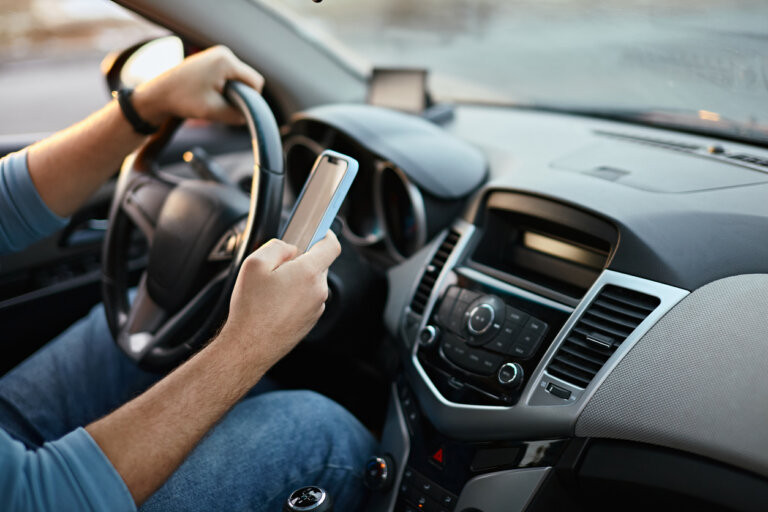With the ever-growing popularity of smartphones and devices, the act of texting while driving has become more of an issue than ever before. With that said, if you’re stopped on the road and receive a texting ticket, know that you’re not alone, and don’t hesitate to seek legal representation. A traffic ticket lawyer can fight your ticket on your behalf to help avoid serious penalties.
Texting and Driving Is Illegal in New York
The use of a cell phone makes for one of the most common types of visual and manual distractions while driving, and it is often at the center of many of today’s vehicular collisions. It is for those reasons that many states’ traffic laws, including New York, deem texting while driving to be illegal.
Of particular note is that, under New York traffic laws, there are actually two different types of cell phone tickets a driver may receive: a Use of Mobile Phone violation and a Use of Portable Electronic Devices violation. A “portable electronic device” includes cell phones, PDAs, laptops, and any device with data access.
A driver will receive the former violation when an officer sees the individual having a phone conversation while driving. The latter violation is issued to drivers engaging in any of the following activities while holding the device:
- Reading, composing, sending, browsing, and transmitting electronic data, including text messages, emails, and web pages
- Taking, viewing, or sending pictures
- Playing games
The only exception to the law is when an individual is using their cell phone in emergencies, such as when contacting 911. Additionally, certain individuals, like police officers, can use their devices so long as they are used under their official duties.
Penalties for Texting and Driving
Texting and driving violations come with certain penalties that usually depend on the number of tickets you’ve received in the past, if any, as well as where the offense occurred.
For a first-time violation, fines range from $50 to $200. If you receive a second offense within 18 months, the upper limit becomes $250. For third or further offenses within 18 months, fines can reach as high as $450. You may also need to pay additional fees and surcharges based on the circumstances.
Additionally, if you’re convicted of a texting violation, you may receive five points on your driver’s license. In New York, accumulating 11 or more points on your license within 18 months means risking license suspension.
Penalties are harsher for junior drivers and those with learner permits. Young drivers caught texting and driving face a suspension of their driver’s license or permit for 120 days, and a second conviction within six months of its restoration results in at least a one-year revocation.
Fighting Traffic Tickets for Texting With the Help of an Experienced Attorney
Just because you receive a cell phone ticket in New York doesn’t mean there’s nothing you can do about it. Paying your fines is always an option that will resolve your issue, but you may also have additional legal options for fighting your ticket that could help avoid costly fines and points on your license.
After receiving a texting ticket, it’s best to speak with a traffic violation attorney. They can review the details of your situation to provide guidance and advice, and they can then create a defense strategy to help prevent penalties and allow you to move on from your traffic violation.
New York Traffic Ticket Lawyers serve clients throughout Central New York. We have years of experience assisting clients with a variety of traffic tickets, including speeding tickets and texting tickets. Contact our firm today to schedule a consultation, and let’s discuss how we can help you.

